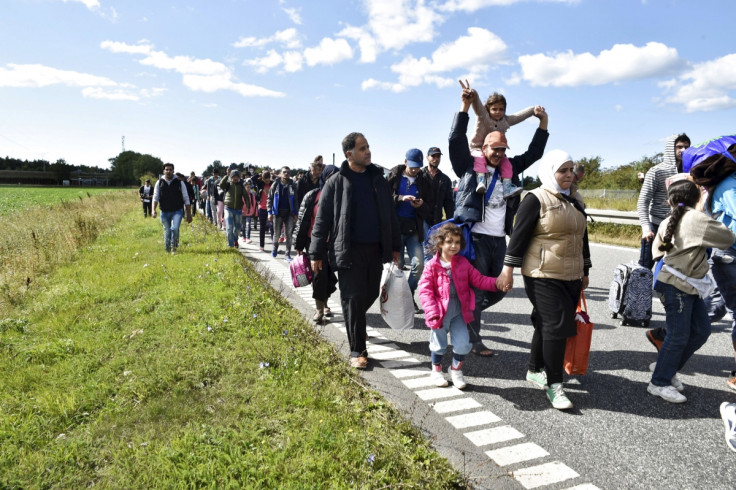Danish rights activist prosecuted and fined thousands for giving Syrian refugee family a lift

A Danish rights activist was prosecuted and subsequently fined £2,300 for 'people trafficking' after she gave a Syrian refugee family - walking on a highway - a lift. Heralded author Lisbeth Zornig and her husband Mikael Lindholm picked up four adults and two children in southern Denmark and took them to Copenhagen on 7 September last year.
The six refugees were part of a large group of mainly Syrian migrants that were attempting to travel across Denmark on foot when the train they were on was stopped in the town of Rødby after going through Germany.
Several hundred Danes were charged with contravening the Danish Aliens Act, which prohibits anyone transporting anyone without residence permits. Supporters of the couple praised their actions on Lolland Island, which borders Germany.
But Danish judges in Nykøbing Falster did not agree, and the couple were handed a combined fine of 45,000 krone (£4,700). The pair had pleaded not guilty to the charges, saying that they did not know they were breaking the law – and that they believed helping those crossing borders was illegal.
Zornig said that she had felt compelled to stop after seeing the hundreds of migrants walking across the roadside. According to the Guardian, the pair gave them coffee and biscuits and Lindholm drove them to a railway station in Copenhagen buying them tickets to Sweden.
"It is not a criminal offence to help fellow human beings fleeing from war," a statement on Facebook said. "There are many of us who believe that those who are accused of trafficking acted with humanity. Let us show that decency and sense of duty still exists in Denmark...civil society showed courage and stepped in where politicians failed."
Zorning, was once the head of Denmark's National Council for Children and added that the judges' decision sent a "clear political signal" to Danish citizens planning to help migrants. She came to prominence in the country after a documentary was released on her abusive childhood, which was followed by an autobiography. She has since campaigned for abuse victims and vulnerable groups.
Earlier this year, Denmark introduced controversial new laws that allowed border agents to confiscate valuables from asylum seekers, that officials said would help pay for their stay.
© Copyright IBTimes 2025. All rights reserved.






















